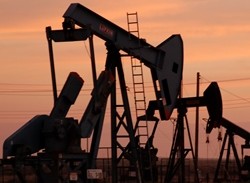 Iraq, a physical and spiritual battleground and now a commercial one.
Iraq, a physical and spiritual battleground and now a commercial one.
That is the reality as the threat from ISIS grows, in an environment where the Ukraine/Russia gas war is beginning to bubble over the last thing the global energy markets needs is another crisis in a crucial energy-producing nation.
Whilst the human toll will always be of greater importance, the commercial impact has serious implications too. Iraq is Opec’s 2nd largest contributor and has already suffered a drop in output capacity due to the sabotage of installations by militants.
Indeed oil analyst Chris Skrebowski says:
“Iraq is turning into a nightmare. There are real risks that this movement [ISIS] will spread to other countries. Our economies are too weak to pay for oil at $120, and they can’t stand $140 if it spikes that high”
Indeed ISIS are directly targeting energy facilities to cause maximum disruption and to gain increased leverage. Iraq’s biggest oil refinery at Baiji, that accounts for more than a quarter of the country’s capacity to refine oil is already in ISISs hands.
Iraq’s oil minister, Abdul Kareem Luaibi, though tempered fears by saying most of country’s crude was pumped from “very, very safe” regions in the Shia South.
However already British companies Royal Dutch Shell and BP have begun evacuating staff from their installations in response to very real safety fears and the market too has got the jitters with prices for crude oil in 2015-16 spiking faster than traditionally more volatile spot prices at around $114 a barrel.
Iraq’s normal contribution to the global oil economy is four times greater than that which is pumped from the North Sea by the UK at around 3.5m barrels per day. The consequences of interruption to that level of predictable supply are therefore clear.
Henk Potts, equity strategist at Barclays, said:
“The market is very closely watching the escalating violence in Iraq, a major oil producer. In the short term, higher oil prices may benefit some oil companies, but in the longer term, if it continues, it will result in an oil shock”
It is estimated that if the entire Iraqi oil output was to fall into the hands of ISIS in similar fashion to that seen in Syria, the cost per barrel could be expected to increase by as much as 50%
Even without further problems in Iraq, the IEA says Opec needs to pump 30.9m barrels per day in H2 2014 to keep prices in check, nearly 1m barrels per day above their current output.
With the cost of oil directly impacting the continental gas price with its traditional index to the oil price, the spectre of further volatility and price rises in natural gas and by extension electricity, the disturbances in Iraq will be keenly felt in western Europe.
The immediate future for the price of energy looks far more certain than the outcome of the long-term volatility of the region.
